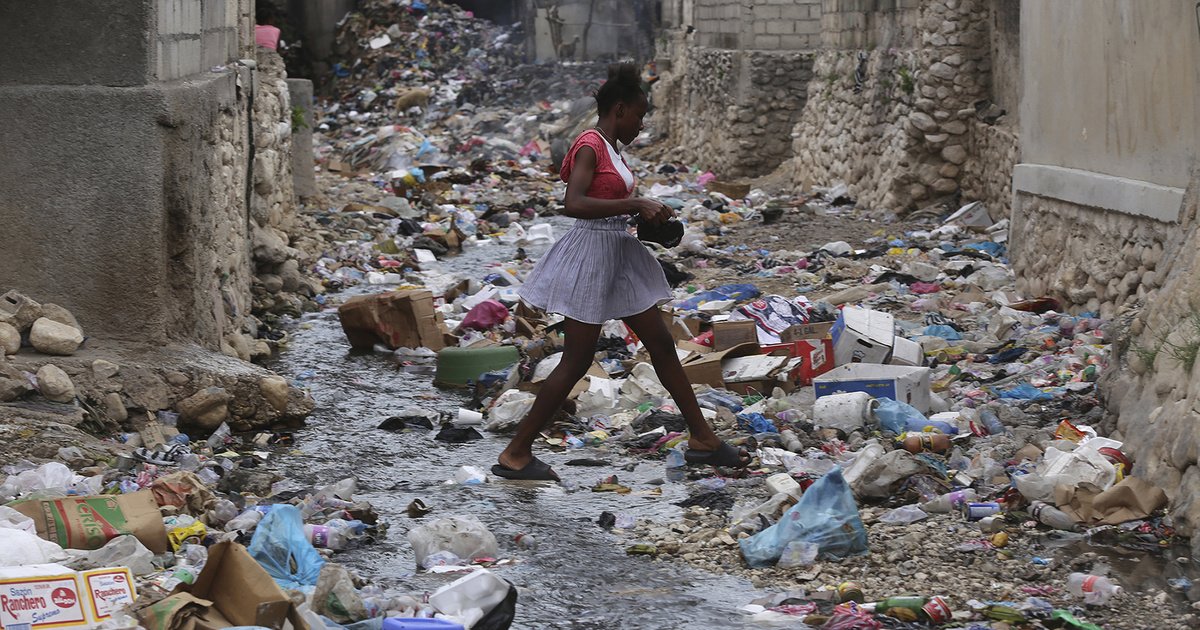Haiti: Natural Disasters and Political Instability
techinlife.info – Haiti, a small island nation in the Caribbean, has been plagued by a series of natural disasters and political instability that have hindered its development and recovery efforts. The combination of these challenges has left the country in a perpetual state of crisis, affecting its economy, infrastructure, and the well-being of its citizens.
Natural Disasters: A Recurring Nightmare
Haiti’s geographical location makes it particularly vulnerable to natural disasters. The country is situated in the hurricane belt, making it susceptible to devastating hurricanes and tropical storms. In addition, Haiti is prone to earthquakes due to its position near the boundary of two tectonic plates.
The 2010 Earthquake
The most catastrophic event in recent history was the 2010 earthquake, which struck on January 12. The 7.0-magnitude quake devastated the capital, Port-au-Prince, and surrounding areas, killing over 200,000 people, injuring countless others, and leaving millions homeless. The earthquake destroyed critical infrastructure, including government buildings, hospitals, and schools, setting back the country’s development by decades.
Hurricanes and Tropical Storms
In addition to earthquakes, Haiti has been battered by numerous hurricanes and tropical storms. The 2016 Hurricane Matthew and the 2017 Hurricane Irma are examples of such disasters that have caused widespread flooding, landslides, and significant loss of life. These storms have also damaged crops and livestock, exacerbating food insecurity in the country.
Political Instability: A Barrier to Recovery
While natural disasters have wreaked havoc on Haiti’s physical landscape, political instability has hindered its ability to recover and rebuild. The country has a history of political turmoil, marked by coups, protests, and leadership crises.
Leadership Vacuum and Protests
The assassination of President Jovenel Moïse in July 2021 plunged the country into further chaos. The absence of a clear successor and the power struggle that ensued have stalled governance and recovery efforts. Protests against government corruption and mismanagement have also been a constant feature, leading to a standstill in many sectors.
Impact on Aid and Development
The political instability has made it difficult for international aid to reach those in need. Donors and aid organizations are often hesitant to commit resources in an environment where the rule of law is weak and the government’s ability to manage aid distribution is questionable. This has slowed down reconstruction efforts and the implementation of development projects aimed at improving living conditions.
The Way Forward
The path to recovery for Haiti is fraught with challenges. Addressing the root causes of political instability, such as corruption and weak governance, is crucial for creating a stable environment conducive to development. International support, both in terms of aid and diplomatic efforts, is essential to help Haiti navigate through these turbulent times.
Strengthening Institutions
Building strong, resilient institutions is key to ensuring that Haiti can withstand future natural disasters and political shocks. This includes investing in infrastructure that can better withstand natural disasters and creating a more transparent and accountable government.
Economic Development
Economic development is also vital for improving the living conditions of Haitians and reducing the country’s vulnerability to external shocks. This involves diversifying the economy, investing in education and healthcare, and creating job opportunities.
International Cooperation
Finally, international cooperation and solidarity are essential for Haiti’s recovery. The international community must work together to provide sustained support, ensuring that aid is effectively delivered and that development projects are aligned with the country’s long-term needs.
In conclusion, Haiti’s journey towards recovery is complex and multifaceted. Addressing both natural disasters and political instability requires a concerted effort from both the Haitian government and the international community. With the right support and policies, Haiti can overcome its challenges and build a more resilient and prosperous future.

